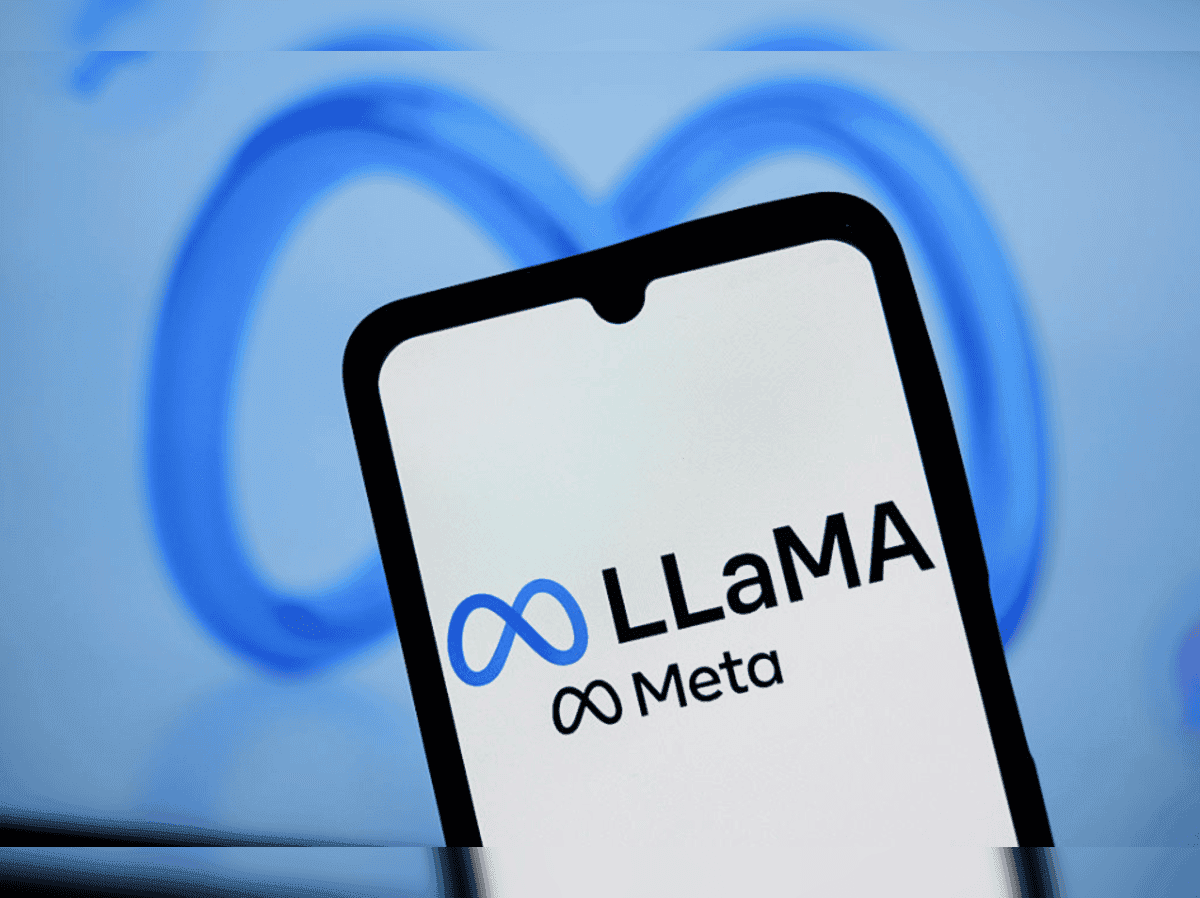Meta Expands Llama AI Access to US Allies in Europe and Asia
5 Sources
5 Sources
[1]
Meta's Llama to be made available to US allies in Europe, Asia
Sept 23 (Reuters) - Allies of the United States in Europe and Asia will now have access to Meta Platforms' (META.O), opens new tab artificial intelligence system Llama, the company said on Tuesday, a day after the U.S. approved its use for government agencies. Llama is a large language model capable of processing data, including text, video, images and audio. The social media giant is now expanding access to a number of U.S. democratic allies in Europe and Asia: France, Germany, Italy, Japan and South Korea, as well as NATO and European Union institutions, it said in a blog post. Meta will partner with companies such as Microsoft (MSFT.O), opens new tab, Amazon's (AMZN.O), opens new tab AWS, Oracle (ORCL.N), opens new tab and Palantir (PLTR.O), opens new tab, among others, to bring Llama-based solutions to the U.S. allies. Meta releases its Llama models largely free of charge for use by developers, a strategy CEO Mark Zuckerberg previously stated will pay off in the form of innovative products, less dependence on would-be competitors and greater engagement on the company's core social networks. The U.S. government's purchasing arm, the General Services Administration, will add Llama to its list of approved AI tools for federal agencies, procurement lead Josh Gruenbaum said on Monday. Reporting by Juby Babu in Mexico City; Editing by Alan Barona Our Standards: The Thomson Reuters Trust Principles., opens new tab
[2]
Meta is making its Llama AI models available to more governments in Europe and Asia
Meta is allowing more governments to access its suite of Llama AI models. The group includes France, Germany, Italy, Japan, and South Korea and organizations associated with the European Union and NATO, the company said in . The move comes after the company took similar steps to bring Llama to the US government and its contractors. Meta has also made its AI models available to the UK, Canada, Australia and New Zealand for "national security use cases." Meta notes that governments won't just be using the company's off-the-shelf models. They'll also be able to incorporate their own data and create AI applications for specific use cases. "Governments can also fine-tune Llama models using their own sensitive national security data, host them in secure environments at various levels of classification, and deploy models tailored for specific purposes on-device in the field," the company says. Meta says the open source nature of Llama makes it ideally suited for government use as "it can be securely downloaded and deployed without the need to transfer sensitive data through third-party AI providers." Recently, Mark Zuckerberg that "safety concerns" could potentially prevent Meta from open-sourcing its efforts around building "real superintelligence."
[3]
Meta to grant EU access to AI model Llama for national security use
The model is already available to government agencies in the United States and a handful of other countries. Tech giant Meta said it will make its artificial intelligence (AI) tool Llama available to "key democratic US allies" in Europe and Asia, amid a push to develop advanced AI for national security reasons. Meta Platforms, which owns Facebook, Instagram, and WhatsApp, said it will extend access to the open-source AI models to France, Germany, Italy, Japan, South Korea, NATO, and the European Union. It had previously made Llama available to US defence and national security agencies and private companies in the sector, as well as those in Australia, Canada, New Zealand, and the United Kingdom. "The US and its closest allies should have the best tools at their disposal to defend themselves and keep their citizens safe," Meta said in a blog post Tuesday. Llama models have helped US agencies with "decision-making, mission-specific capabilities, and operational efficiency," the company said, adding that it could offer Llama to additional countries in the future. Notably, Meta's terms of service bar Llama from being used for "military, warfare, nuclear industries or applications, [and] espionage". However, when it launched Llama in the United States last year, Meta said it was in the "wider democratic world's interest" for American AI models to prevail over those developed in China. That announcement came just days after Reuters reported that researchers in China had reworked an older version of Llama to support the country's own military.
[4]
Meta's Llama to be made available to US allies in Europe, Asia - The Economic Times
Meta Platforms is extending access to its Llama AI system to key U.S. allies in Europe and Asia, including France, Germany, Italy, Japan, and South Korea, as well as NATO and EU institutions. This expansion follows U.S. government approval for its use by federal agencies.Allies of the United States in Europe and Asia will now have access to Meta Platforms' artificial intelligence system Llama, the company said on Tuesday, a day after the U.S. approved its use for government agencies. Llama is a large language model capable of processing data, including text, video, images and audio. The social media giant is now expanding access to a number of US democratic allies in Europe and Asia: France, Germany, Italy, Japan and South Korea, as well as NATO and European Union institutions, it said in a blog post. Meta will partner with companies such as Microsoft, Amazon's AWS, Oracle and Palantir, among others, to bring Llama-based solutions to the U.S. allies. Meta releases its Llama models largely free of charge for use by developers, a strategy CEO Mark Zuckerberg previously stated will pay off in the form of innovative products, less dependence on would-be competitors and greater engagement on the company's core social networks. The U.S. government's purchasing arm, the General Services Administration, will add Llama to its list of approved AI tools for federal agencies, procurement lead Josh Gruenbaum said on Monday.
[5]
Meta Platforms : Strengthening US National Security by Making Llama Available to Key Allies
As a proud American company, Meta is committed to playing its part in ensuring the United States and its closest allies have the best tools at their disposal to defend themselves and keep their citizens safe. Last year, we began making our Llama models available to US government agencies, including those working on defense and national security applications, as well as to private sector partners supporting their work. Llama is particularly well-suited to these sensitiveuse cases because, as an open source platform, it can be securely downloaded and deployed without the need to transfer sensitive data through third-party AI providers. Governments can also fine-tune Llama models using their own sensitive national security data, host them in secure environments at various levels of classification, and deploy models tailored for specific purposes on-device in the field. Since late last year, we have also made Llama available for national security use cases to America's Five Eyes security partners - Australia, Canada, New Zealand, and the UK - and their private sector partners. We are now expanding this access to a number of key US democratic allies in Europe and Asia: France, Germany, Italy, Japan, and South Korea, as well as NATO and European Union institutions. Llama has been used to help develop advanced AI tools for the US military and national security agencies, enhancing decision-making, mission-specific capabilities, and operational efficiency. For example, Meta is working with the Army's Combined Arms Support Command on a pilot project to demonstrate how AI and technologies like augmented and virtual reality can help to speed routine repairs and help the Army get equipment back into the field more quickly. To bring Llama-based solutions to these US allies, our partners include Accenture, Amazon Web Services, AMD, Anduril, Ask Sage, Booz Allen, C3 AI, Circus, Cyberspatial, Databricks, EdgeRunner AI, Google Cloud Services, IBM, Microsoft, Lockheed Martin, Oracle, Palantir, Scale AI, Snowflake, and others. We are also supporting US national security through our work developing augmented and virtual reality technologies. Through ourpartnership with Anduril , we are developing a range of wearable products to help maintain America's technological edge. This program represents the largest effort of its kind to equip US soldiers with enhanced perception and decision-making capabilities. In a world where geopolitical power and national security are deeply intertwined with economic output, innovation, and growth, the widespread adoption of open source models like Llama will be essential to maintaining US and allied AI leadership and ensuring our shared values underpin the systems and standards adopted elsewhere. This is recognized by the US government in its AI Action Plan for America, which Meta endorses. It is the responsibility of countries leveraging AI for national security to deploy AI ethically, responsibly, and in accordance with relevant international law and fundamental principles, principles the United States and many of its allies have committed to in the Political Declaration on Responsible Military Use of Artificial Intelligence and Autonomy. We are taking a step-by-step approach to extending access to Llama for defense and national security purposes, and will consider adding further countries in the future in consultation with the US government.
Share
Share
Copy Link
Meta Platforms is extending access to its Llama AI system to key US allies in Europe and Asia, including France, Germany, Italy, Japan, South Korea, NATO, and EU institutions. This move follows US government approval for Llama's use by federal agencies.
Meta Extends Llama AI Access to US Allies
Meta Platforms, the tech giant behind Facebook, Instagram, and WhatsApp, has announced a significant expansion of access to its artificial intelligence system, Llama, to key US allies in Europe and Asia
1
. This move comes just a day after the US government approved Llama's use for federal agencies, marking a strategic shift in the deployment of AI technologies for national security purposes1
.
Source: ET
Expanding Global Reach
The expansion includes granting access to France, Germany, Italy, Japan, and South Korea, as well as NATO and European Union institutions
2
. This follows Meta's previous move to make Llama available to the US government and its contractors, as well as to the UK, Canada, Australia, and New Zealand for national security use cases2
.Llama's Capabilities and Deployment
Llama is a large language model capable of processing various data types, including text, video, images, and audio
1
. Its open-source nature allows for secure downloading and deployment without the need to transfer sensitive data through third-party AI providers5
. This feature makes Llama particularly well-suited for sensitive use cases in government and national security applications.
Source: Reuters
Customization and Security Features
Meta emphasizes that governments can fine-tune Llama models using their own sensitive national security data, host them in secure environments at various classification levels, and deploy tailored models for specific purposes on-device in the field
5
. This level of customization and security is crucial for national security applications.Strategic Partnerships
To facilitate the implementation of Llama-based solutions for US allies, Meta is partnering with several tech giants, including Microsoft, Amazon's AWS, Oracle, and Palantir, among others
1
. These collaborations aim to enhance the deployment and utilization of Llama across various government and security sectors.
Source: Euronews
Related Stories
Implications for National Security
The expansion of Llama's availability is seen as a strategic move to strengthen US and allied AI leadership. Meta argues that the widespread adoption of open-source models like Llama is essential for maintaining technological edge and ensuring shared values underpin the systems and standards adopted globally
5
.Ethical Considerations and Future Outlook
While Meta's terms of service prohibit Llama from being used for military, warfare, nuclear industries, or espionage
3
, the company emphasizes the importance of deploying AI ethically and responsibly in accordance with international law and fundamental principles5
. Meta indicates that it may consider adding further countries in the future, in consultation with the US government, as part of its step-by-step approach to extending Llama access for defense and national security purposes.References
Summarized by
Navi
Related Stories
Recent Highlights
1
Elon Musk merges SpaceX with xAI, plans 1 million satellites to power orbital data centers
Business and Economy

2
French Police Raid X Office as Grok Investigation Expands to Include Holocaust Denial Claims
Policy and Regulation

3
UK launches formal probe into xAI as Grok continues generating sexualized images without consent
Policy and Regulation








